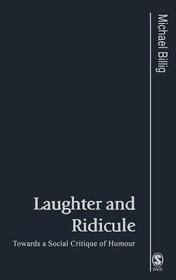
Modernism, Imperialism and the Historical Sense
- Publisher's listprice GBP 18.99
-
9 072 Ft (8 640 Ft + 5% VAT)
The price is estimated because at the time of ordering we do not know what conversion rates will apply to HUF / product currency when the book arrives. In case HUF is weaker, the price increases slightly, in case HUF is stronger, the price goes lower slightly.
- Discount 20% (cc. 1 814 Ft off)
- Discounted price 7 258 Ft (6 912 Ft + 5% VAT)
- Discount is valid until: 31 December 2025
Subcribe now and take benefit of a favourable price.
Subscribe
9 072 Ft

Availability
Estimated delivery time: Expected time of arrival: end of January 2026.
Not in stock at Prospero.
Why don't you give exact delivery time?
Delivery time is estimated on our previous experiences. We give estimations only, because we order from outside Hungary, and the delivery time mainly depends on how quickly the publisher supplies the book. Faster or slower deliveries both happen, but we do our best to supply as quickly as possible.
Product details:
- Publisher Cambridge University Press
- Date of Publication 3 August 2023
- ISBN 9781009415286
- Binding Paperback
- No. of pages200 pages
- Size 227x150x10 mm
- Weight 310 g
- Language English 537
Categories
Short description:
This book provides a re-reading of canonical modernism, connecting it to imperialism without conflating it with imperialist practices.
MoreLong description:
Modernist art and literature sought to engage with the ideas of different cultures without eradicating the differences between them. In Modernism, Imperialism and the Historical Sense, Paul Stasi explores the relationship between high modernist aesthetic forms and structures of empire in the twentieth century. Stasi's text offers new readings of James Joyce, Ezra Pound, T. S. Eliot and Virginia Woolf by situating their work within an early moment of globalization. By combining the insights of Marxist historiography, aesthetic theory and postcolonial criticism, Stasi's careful analysis reveals how these authors' aesthetic forms responded to, and helped shape, their unique historical moment. Written with a wide readership in mind, this book will appeal especially to scholars of British and American literature as well as students of literary criticism and postcolonial studies.
'[A] handsomely-produced book ...' David Pierce, James Joyce Broadsheet
Table of Contents:
Acknowledgments; Introduction: imperial structures of feeling; 1. The persistence of the past: modernism vs. imperial time; 2. The Waste Land and the unreal center of capitalist modernity; 3. Cosmopolitan kulchur: The Cantos as world literature; 4. Turning production into consumption: Ulysses and the construction of postcolonial agency; 5. 'Moments of pride in England': Virginia Woolf and the forms of national subjectivity; Coda: the Edwardian lumber room; Notes.
More

Dancing at Armageddon – Survivalism and Chaos in Modern Times: Survivalism and Chaos in Modern Times

Leonardo. the Complete Paintings and Drawings
35 175 HUF
32 361 HUF









